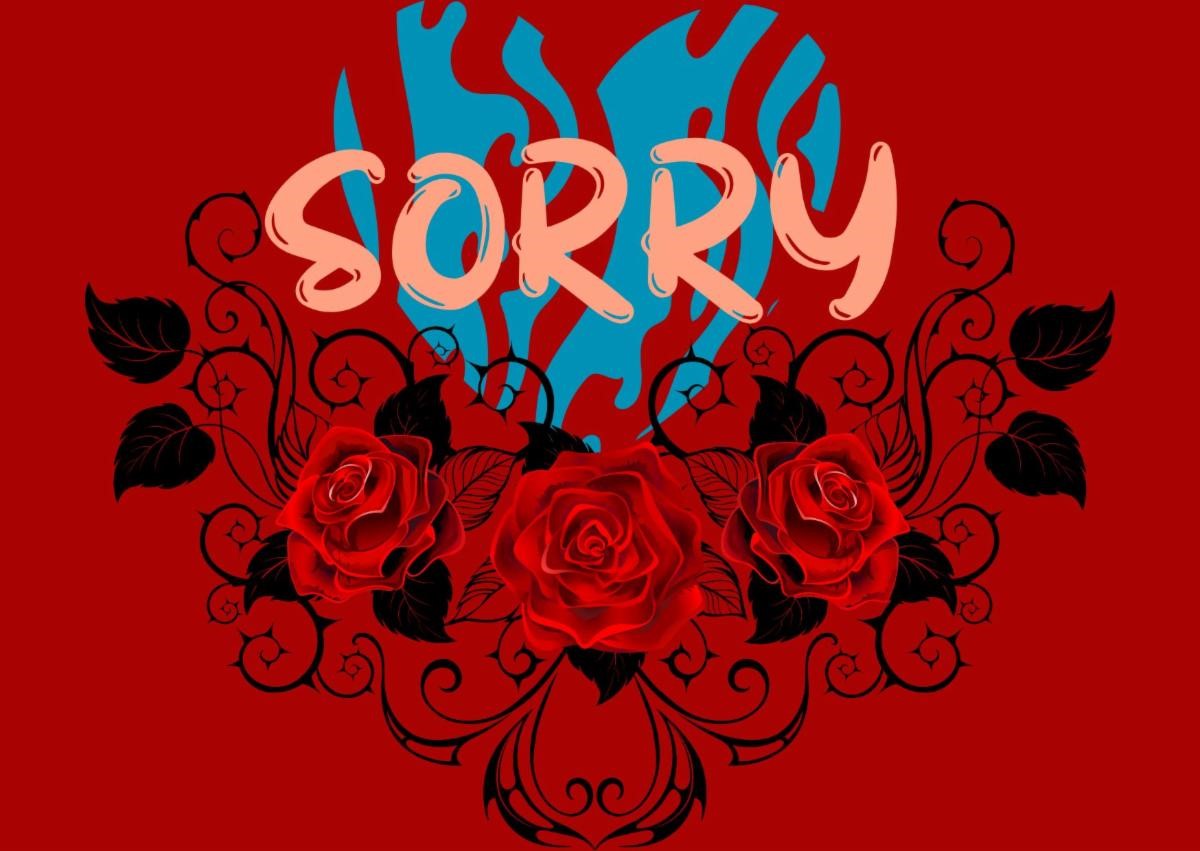
“I AM with you”

Part of the Process

Trust

Yesterday, in our marriage class, we discovered trust is the basis for any solid relationship. When you are young and infatuated, you will pursue that relationship with an excess of unearned trust. In other words, we interpret that budding relationship through “rose-colored glasses.” That infatuation will last for a while; however, we eventually begin to see our partners for who they are: flawed and human.
That is the interesting thing about relationships. Whether we recognize it or not, we are continually comparing the people in our lives to the standard of whether they will or have betrayed our trust in the past. Suppose someone has continuously let you down. You are more reluctant to believe they won’t betray your confidence in the future. When someone breaks our trust, it may seem insignificant; however, day after day, those minor disappointments add up, and we hesitate to allow others unfettered access to our hearts and lives.
Because we are human, we will fail; that is a given reality: we are not perfect. Therefore, we must augment our failures with repentance and make amends for our mistakes in our relationships. If I told Amanda I would take out the trash and then forget to do this, it would violate the trust she placed in me. To counteract this lapse in character, I need to apologize, and then the next time, I need to follow through on what I say. Although this may be a simple and straightforward example, it is one that we should be aware of. Even the little things add up over time, and we should constantly be willing to bolster the areas where we have fallen short.
This is far different than the relationship that we have with God. In human relationships, we know that it is two flawed people living in association with each other- we operate on the assumption that over time, both of us will fail, and we account for those errors. The Bible presents us with a God demonstrated as a Rock that cannot be moved, and while everything else will crumble around us, including our most intimate of relationships, He never will. Therefore, Jesus gives us these comforting words.
Matthew 7:24-29 – “Therefore, everyone who hears these words of Mine, and acts on them, will be like a wise man who built his house on the rock. 25 “And the rain fell and the floods came, and the winds blew and slammed against that house; and [yet] it did not fall, for it had been founded on the rock. 26 “And everyone who hears these words of Mine, and does not act on them, will be like a foolish man who built his house on the sand. 27 “And the rain fell, and the floods came, and the winds blew and slammed against that house, and it fell–and its collapse was great.” 28 When Jesus had finished these words, the crowds were amazed at His teaching; 29 for He was teaching them as one who had authority, and not as their scribes.”
There is only One on which we can base our entire lives. Everything else will fail us at some point. People, Possessions, and Power are all untrustworthy. We might try to prop them up as if they have any potential to rescue or save us, but we ultimately know the reality. They will let us down, break our trust, and ruin our lives. However, God never will leave us, not forsake us (Deuteronomy 31:8, Hebrews 13:5). His word is a Rock that can sustain us even in the harshest storms. God never has failed, and He never will. And therefore, we can build our lives around Him and His Word. We can also say in confidence that we have God we can trust.
Power Move

1 Corinthians 13:11- “When I was a child, I used to speak like a child, think like a child, reason like a child; when I became a man, I did away with childish things.
1 Corinthians 14:20 – “Brothers and sisters, do not be children in your thinking; yet in evil be infants, but in your thinking be mature.”
1 Corinthians 13:12-13 – “For now we see in a mirror dimly, but then face to face; now I know in part, but then I will know fully, just as I also have been fully known. 13 But now faith, hope, and love remain, these three; but the greatest of these is love.”
1 Corinthians 14:26 – “What is the outcome then, brothers and sisters? When you assemble, each one has a psalm, has a teaching, has a revelation, has a tongue, has an interpretation. All things are to be done for edification.”
Carry Forever

Now, we have closed-circuit television cameras and the ability to record virtually everything 24/7. Yet, for the majority of human history, we have relied on eyewitness testimony because when a significant event happens, someone who was there will have it etched into their minds forever. If you want to know what happened, you can ask them, and you trust their testimony, especially if additional witnesses can corroborate it.
“I passed on to you what was most important and what had also been passed on to me. Christ died for our sins, just as the Scriptures said. 4 He was buried, and he was raised from the dead on the third day, just as the Scriptures said. 5 He was seen by Peter and then by the Twelve. 6 After that, he was seen by more than 500 of his followers at one time, most of whom are still alive, though some have died. 7 Then he was seen by James and later by all the apostles. 8 Last of all, as though I had been born at the wrong time, I also saw him. 9 For I am the least of all the apostles. In fact, I’m not even worthy to be called an apostle after the way I persecuted God’s church. 10 But whatever I am now, it is all because God poured out his special favor on me–and not without results. For I have worked harder than any of the other apostles; yet it was not I but God who was working through me by his grace. 11 So it makes no difference whether I preach or they preach, for we all preach the same message you have already believed.”
Passing Through

Passing Through
Throughout my life, I have made a habit out of a particular practice that some would label as extreme, and others may think it is not very interesting. However, it is a custom I have come to appreciate and pass on to my kids. Several times in my childhood, my family would load up in a car and start on a long road trip. We would visit National Parks or scenic sights, and I always enjoyed the thrill of seeing something new. But one of the best experiences that sticks with me to this day is that no matter where we were, every Sunday, we would try to find a local church nearby and attend their worship. I attribute this ordinary custom with a more profound relevance than I truly appreciated at the time. Now that I am older, I see many benefits to keeping this tradition alive. You are cementing some Biblical truths by attending a local church while traveling.
- The church is global-
- “This same Good News that came to you is going out all over the world. It is bearing fruit everywhere by changing lives, just as it changed your lives from the day you first heard and understood the truth about God’s wonderful grace.” – (Colossians 1:6 NLT).
- Many times, we may think we are the only ones, the last bastion of hope… however, the Gospel changes lives and reaches throughout the world.
- “This same Good News that came to you is going out all over the world. It is bearing fruit everywhere by changing lives, just as it changed your lives from the day you first heard and understood the truth about God’s wonderful grace.” – (Colossians 1:6 NLT).
- Each church is different.
- Each church, although a part of the whole, is distinct and different.
- “… Write in a book everything you see, and send it to the seven churches in the cities of Ephesus, Smyrna, Pergamum, Thyatira, Sardis, Philadelphia, and Laodicea.” – Revelation 1:11
- Each church, although a part of the whole, is distinct and different.
- Each church dealt with its distinct and separate issues and problems, although connected through Christ.
- We might have different practices, yet Christ unites us, and if there are differences, this creates an opportunity for learning and diving deeper into scripture.
- The church is built on Love.
- “I want you to know how much I have agonized for you and for the church at Laodicea, and for many other believers who have never met me personally. 2 I want them to be encouraged and knit together by strong ties of love. I want them to have complete confidence that they understand God’s mysterious plan, which is Christ himself.” – Colossians 2:1-2
- Although there are people I might have never met, I can still love them because they are a part of God’s plan.
- “If anyone says, “I love God,” and hates his brother, he is a liar; for he who does not love his brother whom he has seen cannot love God whom he has not seen.” – 1 John 4:20
- The church is paramount-
- We can either see the church as significant or trivial. Our actions are an outgrowth of our beliefs. Regardless of what you say, you believe your life will show the fruit of your heart.
- “And I tell you, you are Peter, and on this rock I will build my church, and the gates of hell shall not prevail against it.” – (Matthew 16:18)
- “To me, though I am the very least of all the saints, this grace was given, to preach to the Gentiles the unsearchable riches of Christ, 9 and to bring to light for everyone what is the plan of the mystery hidden for ages in God, who created all things, 10 so that through the church the manifold wisdom of God might now be made known to the rulers and authorities in the heavenly places.” – Ephesians 3:8-10
- Do we believe that the church is the embodiment of the manifold wisdom of God?
- We can either see the church as significant or trivial. Our actions are an outgrowth of our beliefs. Regardless of what you say, you believe your life will show the fruit of your heart.
There are numerous other reasons to visit other congregations while traveling; however, what I have listed are great reasons to put this into practice. We haven’t even discussed how this builds up the other congregations and encourages them to keep pressing on toward the upward call. These are the reasons why I go. It also solidifies these thoughts in my heart and hopefully plants a seed for my family as we walk together toward a new heaven and earth. Because no matter how you want to put it, we are all just passing through.
Sharper

Many people will ask a child what they want to be when they grow up, a doctor, firefighter, musician, artist, or engineer, and parents wish them some earthly success (i.e., fulfillment) for their child. Other parents want their children to grow up to be kind and compassionate, to be “good” people to themselves and those around them. But for me, my biggest desire is that my kids grow up to love God with their entire being. Because I know that if my children grow up to
“… seek first His kingdom and His righteousness, and all these things will be given to you as well.” (Matthew 6:33).
Part of them pursuing this end is for me to pass on a vibrant and lived-out faith. I do not want my kids to see me as a hypocrite, preaching one thing on Sunday mornings and living oppositely Monday through Saturday. This is precisely what Deuteronomy 6:4-9 points out.
Deuteronomy 6:4-9 – “Hear, Israel! The LORD is our God, the LORD is one! 5 “And you shall love the LORD your God with all your heart and with all your soul and with all your strength. 6 “These words, which I am commanding you today, shall be on your heart. 7 “And you shall repeat them diligently to your sons and speak of them when you sit in your house, when you walk on the road, when you lie down, and when you get up. 8 “You shall also tie them as a sign to your hand, and they shall be as frontlets on your forehead. 9 “You shall also write them on the doorposts of your house and on your gates.”
There is a word used in this passage that is a Hebrew idiom or phrase that carries a more significant meaning than we might immediately grasp. This phrase translates as “you shall repeat them diligently,” but you could also render it as “repeat them again and again,” the gist is that it is a repetitive process. Yet the word coveys a more intensive meaning.
“For the word of God is alive and powerful. It is sharper than the sharpest two-edged sword, cutting between soul and spirit, between joint and marrow. It exposes our innermost thoughts and desires.” (Hebrews 4:12).
God’s word has the unique ability to touch the deepest part of our existence.
There is still a more profound meaning; part of the word שָׁנַן shânan means to whet or sharpen- as in the process of using a whetstone to sharpen a knife blade. To hone a knife means to remove the imperfections of your edge and make it straighter and sharper; you are molding your knife to be its best version of itself (metaphorically speaking). We all know that a dull knife is dangerous, and if we want to bless the world, we need our children to be sharp and true, minimizing the damage done by a harsh and cruel world.
Because as the pressures of the world so easily wear us down, there is only one thing that will make them effective and resilient- that is by seeking God through His Word and Spirit. Therefore, through the repetitive and intentional use of God’s word in my life and home, I am shaping and sharpening my children for when they might need to draw deeply from the spring of Life. For those without children or past that point in life, how are you being molded or sharpened? How are you allowing God to hone you to where He wants you to be? Are you dulling, or are you becoming sharper? But I will do everything in my power to make those who come alongside me sharper.
Promised Land

One of the ships, the Star of India, the oldest surviving sailing ship, has a story as impressive as its weathered timbers. It embarked from the Isle of Man in the British Isles in 1867, and its purpose was to haul cargo from England to India and back. However, the most astonishing part is that after its life as a cargo ship, it became commissioned as a transport vessel for people. The ship’s new route was from England to New Zealand via the Suez Canal in Egypt, each trip taking 100 days or more to complete. Entire families would load up and travel to New Zealand; they would sell all their belongings, buy enough supplies to last the trips, and outfit their tiny cabins within the cargo hold in hopes of making it to a new land rife with opportunities—an incredibly tough journey made by resilient and robust people.
Journeys like this take a certain level of determination, endurance, and strong dispositions to complete it. These aren’t the voyages of fanciful dreamers, happy-go-lucky day-trippers, and laissez-faire tourists. They only partly knew what they were getting into, and they met that challenge with resolve and persistence. These voyages remind me of another traveler who started migrating toward an unknown location because he was told of a future promise.
Hebrews 11:8-10, 14-16 NASB20 – “By faith Abraham, when he was called, obeyed by going out to a place which he was to receive for an inheritance; and he left, not knowing where he was going. 9 By faith he lived as a stranger in the land of promise, as in a foreign land, living in tents with Isaac and Jacob, fellow heirs of the same promise; 10 for he was looking for the city which has foundations, whose architect and builder is God. … 14 For those who say such things make it clear that they are seeking a country of their own. 15 And indeed if they had been thinking of that country which they left, they would have had opportunity to return. 16 But as it is, they desire a better country, that is, a heavenly one. Therefore God is not ashamed to be called their God; for He has prepared a city for them.”
I reflect on this passage often. Abraham is our spiritual archetype; God promises him a glorious place he has never been to; this thought alone is an exercise in faith and belief. Yet because he trusts in God, he is willing to leave all that he has known and travel there. Abraham’s legacy is that he will gain an inheritance that God provides. Abraham intentionally left his earthly family, giving up whatever land or birthright he would have had to receive an inheritance from God.
The author of Hebrews leaves his readers and us with the rhetorical question, “Would you live like a stranger now so that you can enjoy God’s inheritance later?” or “Are you willing to risk everything you have now for the promise of God?” These questions link with our desire to pursue God. In our lives, we want to have it all; we want to have our cake and eat it too. The lesson from Abraham is that you must be willing to leave what you know for what God will give you. And when you live like this, God is proud to be called your God because He knows your heart is truly His.
We should be inspired as we consider individuals willing to brave the unknown: Marco Polo, Lewis and Clark, homesteaders on the Oregon Trail, and the passengers on the Star of India. To leave everything, traveling with nothing but the hope of a future, is moving and motivating. Let’s be like those intrepid travelers, willing to leave it all behind for a Promised Land.
A Second Life

I remember how nervous I felt as the plane landed at the San Antonio airport, collecting my carry-on bag and following the signs to the receiving area. Young adults were racing through the airport, excited to start their new life, whooping and hollering as they went. I remember practically running corridors trying to keep up with the rest of the recruits. As I rounded the corner, there, tucked into a corner of the airport, was the designated collection point.
As we approached, the instructors had a place to sign in; peering at the paper, you located your name and signed in, letting them know you were there. And they asked you to take your seat… that is when everything changed. Your signature magically transformed each person into a trainee, stripping you of any level of anonymity or individuality- you belonged to Uncle Sam. The military personnel used their displays of intimidation, applying social pressures and barking orders, and you knew your enlistment became real.
August 1, 2013, is a far different memory in my mind; almost 11 years after my enlistment, I made another transition. I stepped away from military/government life to serve a different population. Through the promptings of many people in my life and God’s hand in my life, I transitioned to ministry. My first taste of ministry was loading up 20 teenagers and heading to Ute Lake, near Logan, NM. That weekend changed my life more than the military had previously done. To sit and play with these kids while we enjoyed the community of Christ was unparalleled compared to anything I had done before.
I share these two stories because they both affected me. One experience changed me through shouting and breaking me down mentally. The other built me up to show me my true potential. This is the difference between what the world offers and what life in the spirit is like. I am reminded of this passage from Paul’s letter to the church in Corinth.
So many people are stuck, living only in the nature of the first Adam. They are only sympathetic to the physical side of life. And they wonder why this is a life that conforms to only one end. You may pursue the highest and noblest causes but there is no benefit to that pursuit. There is only one end to this physical life… DEATH. God, through Paul, is informing us of something that is beyond this life of death, there is an avenue of life, and that is found only in Jesus. And when you have that life, you have an abundant life, more than you can imagine. It fills you up and sustains you. It is a well that never runs dry. We have all lived and experienced the earthy-fleshy side of existence- I urge you to strive for the life change of a Second Life.
P.S. I loved my service in the military, but it pales in comparison to a life devoted to Christ. I know not everyone is blessed enough to enjoy vocational ministry. But if you aren’t serving the Kingdom of God in some way, you are missing out, on something that is beyond your wildest imagination. Pursue that which is greater, and higher, a nobler…but one that leads to life everlasting.
Missing Out

Everyone is different, especially when it comes to vacations. Some like to rest and relax. For them, a vacation is there to afford you copious amounts of downtime. Others are “travelers” because they want to experience a different atmosphere and region of the world, taking in the sights and sounds of somewhere they only visit. I feel as though I land in both camps, I like to relax, but I also want to experience new things while I am out and about.
While in southern California, we were also vacationing with our longtime friends, the Darnells, Matt, Beth, and their three children. One of the neat experiences we were able to be a part of was going to SeaWorld. Before going, I had conjured up some visions of a large aquarium with the possibility of an interactive show. I was unsure what to expect, but I know my kids love animals, and this would be a neat way to see animals that are often out of our view.
As we approached the park, the boys immediately noticed some rollercoasters. Theo absolutely loves a good rollercoaster unless it makes him sit alone; he likes the comfort of his mom or dad next to him. Well, this changes our approach. Now we will see sea animals and go on a few rides. As we walked in the front gate, we started noticing signs attached to the lines for the rides that said $6 unless you have a special annual park pass. This observation was devastating because although I am not cheap, I can’t imagine paying $6 per person per ride; for my family of 5, that’s $30 every time we get on a ride! Amanda and I decided to sponsor one ride per child, but they must really want to go on that ride.
Many Christians assume they know what is included in the life of following Christ. They think they know what a life devoted to Jesus is all about, but they often miss out on some significant benefits. I can’t tell you how many Christians feel when they assume all responsibility for their salvation. Even though they know that Jesus is their Savior, they think they are responsible for their entrance into Heaven.
It is like going to a theme park and not fully realizing the joy and the freedom of a rollercoaster. The wind in your hair, the exhilaration of zero gravity. God has made some astounding promises in scripture, and we should realize the full benefits without ignoring what He has done for us. Reflect on these verses and ask yourself if you rest in these promises or feel you are still responsible for your salvation. As the old song says, Jesus paid it all, and the entrance fee is there. Do you realize that, or do you feel like you should pay $6 to enjoy the ride? My prayer is that you don’t feel like you are Missing Out.
1 Peter 1:18-19 – “For you know that God paid a ransom to save you from the empty life you inherited from your ancestors. And the ransom he paid was not mere gold or silver. 19 It was the precious blood of Christ, the sinless, spotless Lamb of God.”
Celebrated!

You can think of this from human relations and our relationship with Christ as His Bride. For this reason, it is one area in our lives that Satan desires to destroy and dismantle. So for those of you committed to another soul in holy matrimony, here are some things I have learned during my seasons of marital bliss.
Marriage is like an ocean; each relationship has an ebb and flow. All days are not the same. Some days, you will have more to give, and others, you will need an extra dose of grace. Some days I am extremely needy; others, I am positively selfless. We all have these tidal motions, and there needs to be ebb and flow. If you feel as though you are either giving or taking constantly without reprieve in your relationships, then you need to have a conversation with your loved one. There should be reciprocity within the union. Because in a relationship, if there is no give and take, back and forth, then that isn’t a marriage that is a dictatorship.
“And I have been a constant example of how you can help those in need by working hard. You should remember the words of the Lord Jesus: ‘It is more blessed to give than to receive.” (Acts 20:35).
Marriage cannot be about simply going through the motions. We all know when someone is fake or counterfeit. In any relationship, there must be active participants. One aspect that will kill any relationship is when one partner is not authentic and genuine with their spouse. As Paul writes to the church in Corinth–
“[love] rejoices with the truth” (1 Corinthians 13:6).
You cannot fake your way through marriage, it is the most intimate relationship, and your partner requires and demands authenticity and truth in every aspect. Earlier in that chapter, Paul explains that actions without love are useless as he states,
“If I speak with the tongues of mankind and of angels, but do not have love, I have become a noisy gong or a clanging cymbal. 2 If I have the gift of prophecy and know all mysteries and all knowledge, and if I have all faith so as to remove mountains, but do not have love, I am nothing. 3 And if I give away all my possessions to charity, and if I surrender my body so that I may glory, but do not have love, it does me no good.” (1 Corinthians 13:1-3).
You cannot separate actions from intentions, which is true in our relationship with Christ and each other. Too often, when I talk to struggling couples, one of the partners is “just going through the motions,” which is detrimental to everyone involved. If you are not being genuine, reignite the love you had at first. Otherwise, you are torturing the one person you promised to love unconditionally.
It would be best to remember that two strong-willed, independent people will constantly pull in different directions. They will not always be opposites, but they will be different. Even a few degrees of differentiation will produce tension. Often we are just interpreting the same problem differently. If you have ever assembled furniture with someone, you will see that there is more than one way to tackle any endeavor. What is the solution when these tensions arise? Remind yourself of why you are together in the first place.
Recall how wayward Israel was toward God, yet what causes God to remain faithful and forgiving? He remembers,
“Go and shout this message to Jerusalem. This is what the LORD says: “I remember how eager you were to please me as a young bride long ago, how you loved me and followed me even through the barren wilderness.” (Jeremiah 2:2).
For all of us in the thick of marriage, we must remember the reasons we chose each other in the first place. There was something that drew you together. Reflect and recall those things, especially in the hard times, especially when you are giving more than receiving. It is easy to forget the “why” when you are caught up in the “how” and “what.” Keep reminding yourself what brought you into this committed relationship in the first place.
“Let your wife be a fountain of blessing for you. Rejoice in the wife of your youth.” (Proverbs 5:18).
Rejoice in your spouse! Life will take everything you have, and having another person to share life makes it tolerable. If you are not celebrating your marriage, you miss out on one of life’s few comforts.
“Furthermore, if two lie down together they keep warm, but how can one be warm alone?” (Ecclesiastes 4:11).
A couple choosing to stay together is work. However, it is beneficial and advantageous if the commitment to another is practiced and honored. As described in this verse, the world is cold and dark… rejoice that someone has your back and keeps you warm. These are all things that can and should be celebrated.
Sorry

Our boys are learning this lesson right now. You can’t tackle your brother and then expect a quick “sorry” to make everything better. Your sibling wants justice, typically from mom and dad, and also that you promise not to harm them again. Perhaps you have been there, and someone else’s actions have hurt you; there is typically no quick fix. We want to see a change of heart and a change of behavior.
We have been looking at the Name of God and focusing on His character. God’s character is complex in that one aspect is that He is compassionate and merciful, but He is also just, punishing wrongdoing. Look at God’s description of Himself from Moses’ encounter with Him.
Exodus 34:6-7 – “Then the LORD passed by in front of him and proclaimed, “The LORD, the LORD God, compassionate and merciful, slow to anger, and abounding in faithfulness and truth; 7 who keeps faithfulness for thousands, who forgives wrongdoing, violation of His Law, and sin; yet He will by no means leave the guilty unpunished, inflicting the punishment of fathers on the children and on the grandchildren to the third and fourth generations.”
On one side, He is faithful to thousands; on the other, he will punish generations for the guilty. At first glance, this seems like a contradiction. We should note there remains a distinction between thousands and even punishing up to the fourth generation, which is only a fraction of that initial number. Therefore, even in God’s justice, He makes a provision for grace and mercy. He could be unilateral in that faithfulness and punishment will be equal, affecting thousands.
Although God does not stop there, what God truly wants is not a quick condemnation and eternal separation. God desires us to recognize our failings and adjust our hearts and actions.
Deuteronomy 4:29-31 – “But from there you will seek the LORD your God, and you will find Him if you search for Him with all your heart and all your soul. 30 “When you are in distress, and all these things happen to you, in the latter days, you will return to the LORD your God and listen to His voice. 31 “For the LORD your God is a compassionate God; He will not abandon you nor destroy you, nor forget the covenant with your fathers which He swore to them.”
We can appreciate this reality. God wants us to say that we are sorry and asks us to do three main actions. First, we are to seek Him with all our hearts and soul. We are to pursue Him. Our pursuit of Him cannot be a half-hearted endeavor; we reciprocate God’s continual faithfulness to us, but this can’t be a reluctant or uncommitted approach; we must be sincere. Next, we are to return; in other words, repentance, aligning our actions with God’s direction. It is changing your behavior for the betterment of everyone involved. It follows Jesus’ first message,
“From that time, Jesus began to preach and say, “Repent, for the kingdom of heaven has come near.” (Matthew 4:17).
Finally, we must continually listen to His voice; this encapsulates the other aspects and denotes a constant action. We are not saying “sorry” and moving on; we are listening to God’s instructions for our future direction. Sometimes we say “Sorry” in an attempt to bury our wrongs and avoid true change; God asks His followers to pursue, return, and listen to Him.
If you have ever needed to make amends, this is how to do it. You apologize, then you pursue that person to make it right, next change your behavior, then ask them what you can do to make it better in the future.
These are the desires of humans; these are the desires of God. We don’t want quick confessions; we want others not to violate us again; we want a change of heart and behavior. God wants us to seek, change, and listen, conforming to His ways for our good. So, as we live in relation to God, let’s stop just only saying, “Sorry.”